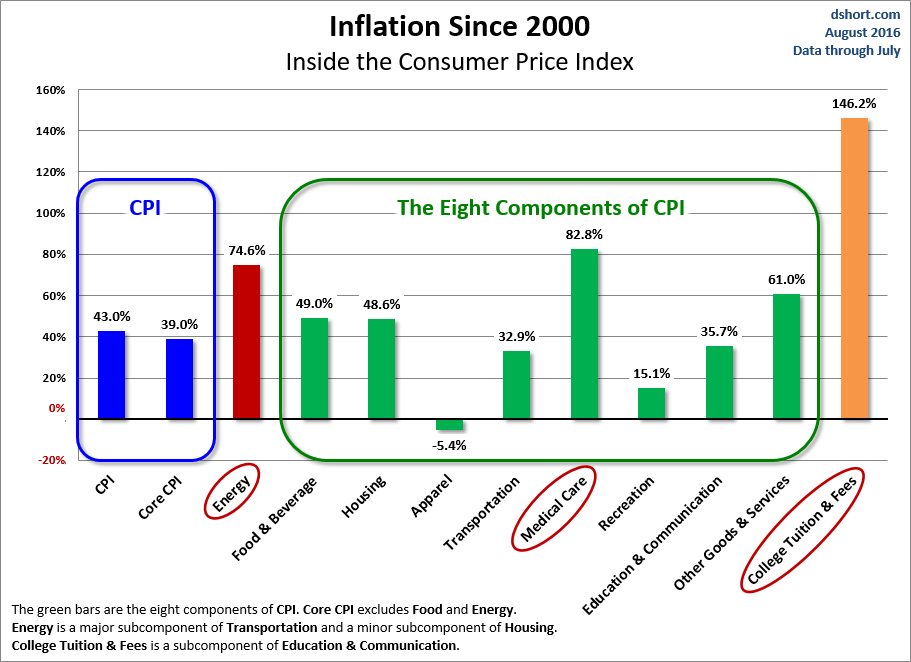“This generation of Americans is very likely to be the first generation in our history as a nation to leave a worse economy and a worse fiscal position than the one they inherited. THE INFORM ACT is a step in the right direction toward informing Americans of the magnitude of this problem.”
-- James Heckman, Nobel Laureate in Economics
-- James Heckman, Nobel Laureate in Economics
Dear Fellow Economists and Other Fellow Citizens,
Please join the 15 Nobel Laureates in Economics, prominent former government officials, and others listed here in endorsing the INFORM ACT.
The INFORM ACT requires the Congressional Budget Office (CBO), the General Accountability Office (GAO), and the Office of Management and Budget (OMB) to do fiscal gap accounting and generational accounting on an annual basis and, upon request by Congress, to use these accounting methods to evaluate major proposed changes in fiscal legislation.
The INFORM ACT is a bi-partisan initiative. The bill was introduced Senators Kaine (Democrat from Virginia) and Senator Thune (Republican from South Dakota) and is being co-sponsored by Senator Coons (Democrat from Delaware) and Senator Portman (Republican from Ohio). The Bill will shortly be introduced on a bi-partisan basis in the House of Representatives.
Background
The fiscal gap is a comprehensive measure of our government's indebtedness. It is defined as the present value of all projected future expenditures, including servicing outstanding official federal debt, less the present value of all projected future tax and other receipts, including income accruing from the government's current ownership of financial assets.
Generational accounting measures the burden on today's and tomorrow's children of closing the fiscal gap assuming that current adults are neither asked to pay more in taxes nor receive less in transfer payments than current policy suggests and that successive younger generations' lifetime tax payments net of transfer payments received rise in proportion to their labor earnings.
Neither fiscal gap nor generational accounting are perfect measures of fiscal sustainability or generation-specific fiscal burdens. But they offer significant advantages relative to conventional measures of official debt. First, they are comprehensive and forward-looking. Second, they are based on the government’s intertemporal or long-term budget constraint, which is a mainstay of economic models of fiscal policy. Third, neither generational accounting nor fiscal gap accounting leave anything off the books.
Fiscal gap accounting and generational accounting have been done for roughly 40 developed and developing countries either by their treasury departments, finance ministries, or central banks, or by the IMF, the World Bank, or other international agencies, or by academics and think tanks. Fiscal gap accounting is not new to our own government. The Social Security Trustees and Medicare Trustees have been presenting such calculations for their own systems for years in their annual reports. And generational accounting has been included in the President's Budget on three occasions.
According to recent IMF and CBO projections, the U.S. fiscal gap is far larger than the official debt and compounding very rapidly. The longer we wait to close the fiscal gap, the more difficult will be the adjustment for ourselves and for our children. This said, acknowledging the government's fiscal gap and deciding how to deal with it does not rule out productive government investments in infrastructure, education, research, or the environment, or in pro-growth tax reforms.
Your endorsement, together with those of the Nobel Laureates and former high-level government officials, will be included in an open letter to Congress, which will be printed in the New York Times in a full page ad in the Fall. A copy of the letter is provided on this site.
Please Endorse the INFORM ACT by clicking on the ENDORSE tab on this site. Please also forward the url to this site, tweet it, like it, share it and do anything else you can to encourage other economists and concerned citizens to endorse the INFORM ACT.
With deep appreciation for your consideration of this request,
Larry Kotlikoff
Professor of Economics,Boston University
Professor of Economics,Boston University
The Intergenerational Financial Obligations Reform Act | THE INFORM ACT







